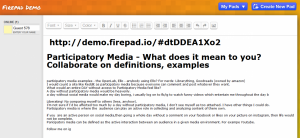Copyright law protects intellectual property. No ifs, no buts – it is, what it is. Anyone who is rowing against it just not familiar with basic concept of private property in general. The idea of private owning is fundamental not only for economy, it’s even more important for structure of the government. Of course, when the whole generation was raised with child mentality, when people not even try to create something but just copying everything what already exist, idea about protection of intellectual property looks not right. And of course, it’s not people fault they being breeding that way, person with child mentality not creator, he is user. That’s why more and more people forget how to built desktop tower from the part, how to fix the car, even how to cook at home. Generation of creators much less profitable and much more complicated in terms of world commerce and ruling. But why the whole generation stop thinking critically? Why people fighting for insignificant things instead trying to change situation and themselves? Because Orwell’s Big Brother really exist- it’s muss media , social network , all virtual space in general, and he is dancing and laughing and the whole world doing the same like being hypnotized. People think they doing something real when they create some ice water challenge or whatever you call it, but truly it’s fake. If only you can see wider you’ll see that whol entertainment social media concept with open and closed data, accessibility, connection and anything else you can imagine was create to keep people (users) from real life, real creation, make nations(majority) even more dependable from people who really own power(knowledge, information). The whole idea, if people want to change this situation, they should stop fighting around copyrighting and information pools which are already exist, but start to create new pools, which will be built on a different principals and will be regulate differently, with no monopoly right , unfair copywriting, with high level of credibility, etc. And it’s can’t be just a wish, people can’t just relegate this to somebody else, it must be social responsibility of every person who connect with that source of information.



